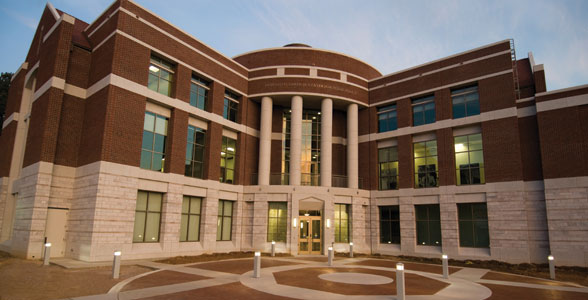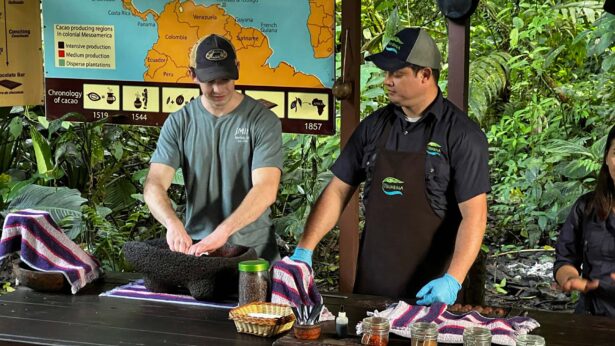By Chandra Harris-McCray
Nicknamed “The Great Reconciliator,” former senator Howard H. Baker Jr.’s service to the people of Tennessee and America lives on through education, research, and public programs at UT Knoxville.
The Howard H. Baker Jr. Center for Public Policy commemorates and honors the public service achievements of Senator Baker, who was known for his ability to cross party lines. He encouraged lawmakers to examine key issues through a nonpartisan lens in an effort to initiate change for the public good.
Funded with private gifts, the nonpartisan institute’s mission is to develop and promote research to further public knowledge of our system of governance and to highlight the critical importance of public service, a hallmark of Baker’s career. A UT law alumnus and longtime supporter of the university, Baker continues to help raise money and create partnerships for the center. He also generates ideas and assists in programming.
Baker, who served three terms as a U.S. senator, rose to national prominence during the Watergate hearings of 1973–74 as vice-chairman of the Senate Watergate Committee. Baker also served as President Ronald Reagan’s chief of staff and as U.S. ambassador to Japan.
 Two years before the new facility held its ceremonial groundbreaking in the fall of 2005, the Baker Center was housed in UT Knoxville’s Hoskins Library. The center opened in 2003 after the U.S. Congress awarded UT a $6-million postsecondary education grant to help establish it. Tennesseans serving in Congress at the time, including then-senators Bill Frist and Fred Thompson, said it was appropriate that Baker’s leadership skills and contributions to public service be studied and emulated.
Two years before the new facility held its ceremonial groundbreaking in the fall of 2005, the Baker Center was housed in UT Knoxville’s Hoskins Library. The center opened in 2003 after the U.S. Congress awarded UT a $6-million postsecondary education grant to help establish it. Tennesseans serving in Congress at the time, including then-senators Bill Frist and Fred Thompson, said it was appropriate that Baker’s leadership skills and contributions to public service be studied and emulated.
Baker said the center is “the culmination of many years of effort” but added that its real value is looking forward, not back.
“Rather than just study particular issues, which the Baker Center has done and will continue to do, it will recognize and explore the real meaning of our two broad-based political parties,” Baker said.
The 51,527-square-foot facility includes a 4,500-square-foot museum that tells the story of how government works, using Baker’s life as a backdrop. The museum also explores modern politics in Tennessee and engages students of all ages with interactive exhibits.
Another invaluable asset housed in the building is the center’s Modern Political Archive, which holds Senator Baker’s papers, as well as more than a hundred collections of political papers from other prominent Tennessee leaders, including U.S. senators Baker, Thompson, and Estes Kefauver; former Knoxville mayor and ambassador to Poland Victor Ashe; and former justice of the Tennessee Supreme Court Riley Anderson. Other Baker Center facilities are an auditorium, a rotunda, classrooms for educational programs and university classes, and research areas.
Each year, the Baker Center selects some of UT’s best students as Baker Scholars, who are encouraged to apply their energy and intelligence to a life of public service. Baker Scholars must meet stringent academic requirements and are selected after a rigorous application process. The title of “Baker Scholar” has grown to become one of the premier honors conferred upon UT students of public policy.
“It is the Baker Center’s goal to provide innovative educational initiatives,” said former justice of the U.S. Supreme Court Sandra Day O’Connor, co-chair of the National Advisory Council of the Campaign for the Civic Mission of Schools, a group with which the Baker Center works. “That is important,” she emphasized, “because more young people today can name the Three Stooges than the three branches of government.
“Unless we do something to reverse this disturbing trend, the joke may be on us,” said O’Connor, who was the first woman to serve as a Supreme Court justice. “I am encouraged by the work of the Baker Center in this regard. The center will link the academic strengths of UT with the larger community.”



